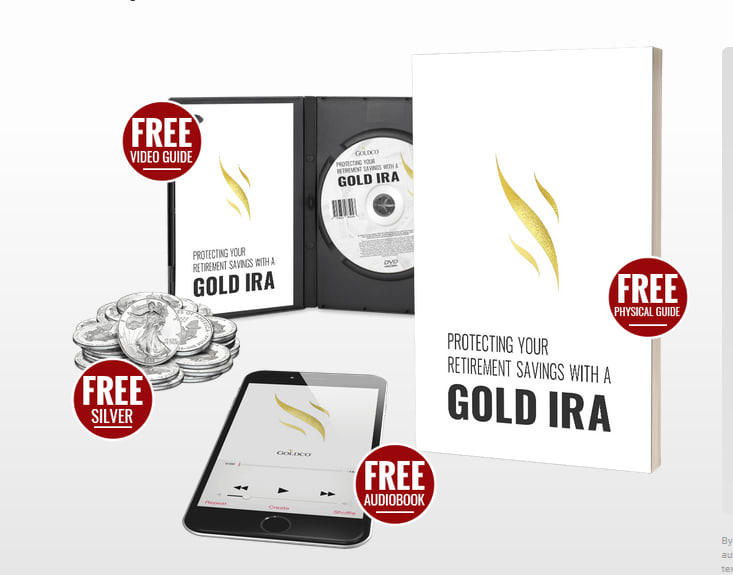Disclosure: The owners of this website may be paid to recommend Gold IRA companies. The content on this website, including any positive reviews and other reviews, may not be neutral or independent.
A custodian is a third party who holds your IRA's assets. They are typically banks, trust companies, brokerage firms, or savings and loan associations. A custodian does not choose the dealers for your IRA; instead, they work with a network of hundreds of dealers. The custodian should be transparent about the fees and other costs associated with holding IRA assets, and they should offer flexibility for individual investors.

Who Can Be An IRA Custodian?
Before choosing an IRA custodian, you need to decide what type of investment you want to make with your IRA. You can choose between traditional, Roth, or SEP or SIMPLE IRAs. Many custodians also offer other retirement account types, such as ESOPs, Health Savings Accounts, and Coverdells. It's important to find a custodian who understands these types of accounts and can provide reliable advice.
A custodian is a third party who holds your IRA assets. The custodian may also handle recordkeeping, although some IRAs outsource the recordkeeping to another third party. If you decide to go with a third-party custodian, you may also want to choose an administrator to oversee your account. Opening an IRA account is similar to opening a bank account.
IRA custodians are required to follow IRS regulations, such as reporting early withdrawals to the IRS. They must also ensure that your contributions don't exceed statutory limits. In the year 2022, IRA contributions are capped at $6,000, but if you are 50 or older, you may contribute an additional $1,000 per year.
Why Does My IRA Say Custodian?
If you own an IRA account, you need to understand the differences between custodians and their role in the IRA system. A custodian is an entity that holds your assets, and is authorized by the IRS to handle your account. Choosing the right custodian is important. This person should be knowledgeable and care about your account.
A Self Directed IRA (SDIRA) is different than a traditional IRA. A Self Directed IRA Custodian acts as a middleman between you and your account, facilitating transactions on your behalf. Your custodian will write checks for you, and facilitate any other transactions you require. These self-directed IRAs are generally the easiest to use and manage. You will be able to ask any questions you may have.
When selecting a custodian, make sure to ask about their fees. Most custodians charge fees for the administration of your retirement account, which can add up quickly. You also want to consider other factors, such as fees for no-load mutual funds and trade commissions. If any of these fees are high, you should be able to avoid that custodian.
What Is The Difference Between An IRA Trustee And An IRA Custodian?
The main difference between an IRA custodian and IRA trustee is the way in which an individual controls their IRA. An IRA custodian manages an account on behalf of its owner and complies with IRS standards. On the other hand, an IRA trustee oversees the account's administration.
IRA custodians make investment decisions for an IRA, and they determine which investments are IRS approved. Financial institutions like banks and credit unions earn money from fees based on investments. In contrast, IRA custodians do not earn fees from real estate investments.
The custodian holds the title of the assets in an IRA and handles IRS reporting. The trustee, on the other hand, is responsible for the investment decisions, such as buying and selling securities. An IRA trustee's role is to provide guidance and direction regarding the best way to invest the money. An IRA trustee is likely to have more experience in the field of investments than a custodian.
One of the biggest complaints that clients have is that custodians lack industry knowledge. This lack of knowledge can make clients feel like they're being scammed. Many of my clients have had problems with their previous custodians because their staff didn't know their stuff. They have had to pay the IRS because of custodians' mistakes.
Do I Need An IRA Custodian?
First, you need to choose the type of investments you want to make with your IRA. A custodian who specializes in real estate can be a good choice if you plan on making real estate investments with your IRA. This is because a real estate custodian will have a staff of experts that are able to answer your questions regarding real estate IRAs. In addition, they can be certified IRA services professionals, which means they're specially trained in handling these types of IRAs.
When choosing an IRA custodian, keep in mind that the service you choose must be approved by the IRS. The IRS maintains a list of nonbank custodians and trustees, and you should choose a firm that is on the list of approved institutions. This list includes 60 different firms, and you should go with names you recognize.
Another important factor is the fee structure. An IRA custodian should be transparent about their fees and charges. Usually, IRA custodians charge fees for asset holding, transaction fees, or maintenance fees. These fees can quickly eat up your retirement funds.
How Do I Become A IRA Custodian?
If you want to be a Gold IRA custodian, you'll need to follow certain steps. First, you should find out what is required of you as an IRA custodian. There are several options for you to consider. One option is to work for a depository. Some depository options are better than others.
A gold IRA custodian is a person who helps investors invest their retirement funds. These professionals act as intermediaries between investors and precious metals dealers. When it comes to choosing a gold custodian, you should be able to find one that offers an extensive list of investment options. Then, you can work with them to help you reach your goals.
There are many regulations governing the gold IRA industry. It is essential to choose a reputable gold IRA custodian that follows all the rules and regulations of the IRS. Moreover, you should be aware that some gold IRA custodians may charge annual or storage fees.
Is The Custodian Of An IRA The Owner?
When you invest with an IRA, you're essentially paying a third party to manage your account. A custodian will make decisions on what types of investments to make. Banks and financial institutions earn money on IRA investments, but they don't earn fees on real estate.
A traditional IRA custodian will follow your investment instructions, but can refuse to invest in nontraditional investments due to lack of transparency, lack of liquidity, or fraud. Self-directed IRAs, on the other hand, allow you to invest in alternative investments without the supervision of an outside entity. Examples of these investments include precious metals, tax lien certificates, and private placements.
An IRA custodian must adhere to strict regulations laid out by the Internal Revenue Service (IRS) and be registered with the Better Business Bureau. A self-directed IRA promoter or administrator does not meet these requirements and is therefore not a custodian. This means the owner cannot issue the funds or hold the title to the assets.
Can I Be My Own Self-Directed IRA Custodian?
While the benefits of self-directing your own IRA are many, you must be aware of the risks. You will be responsible for performing due diligence on all investments and must fully understand tax implications. A custodian will not dig into these details, but you should. In addition, you should avoid doing business with anyone related to your IRA, including relatives.
Before you set up your own self-directed IRA, you will need to find a bank or brokerage firm that is approved by the IRS. Look for their customer service and experience in the industry. You should also be able to find detailed information on self-directed IRAs on their website.
Self-directed IRAs are similar to traditional and Roth IRAs, except you choose to be your own custodian. IRAs with self-directed accounts have the same contribution limits and eligibility requirements. You can contribute up to six thousand dollars per year and seven thousand for those who are 50 and older. The funds you withdraw may not be taxed unless you withdraw them before reaching age 59 1/2. You can invest in different kinds of alternative investments using your self-directed IRA, but the custodian will generally limit your investments to securities that it approves.
How Do IRA Custodians Make Money?
When considering how to invest your IRA, you should consider investing in gold. Gold is a tangible asset that will appreciate over time. In a time of depreciating currency, investing in gold is a wise move. Unlike stocks, which may drop in value during a crisis, gold will continue to rise in value over time. Investing in gold for your IRA is a good idea if you are interested in diversifying your portfolio.
In order to stay in business, custodians must charge a fee for their services. These fees can range from $50 to a couple hundred dollars, depending on the size of your account. Additionally, some custodians charge an annual maintenance fee to cover administrative costs. Some charge a flat annual fee, while others charge a sliding scale fee that increases with the size of the account.
As an investor, you should thoroughly research the company you are considering. The web is a powerful tool for learning. A reputable company will have a website that is easy to navigate, well-designed, and full of useful information. The site should also provide transparent information regarding their offerings and management.

Goldco
Goldco is a leading provider of the precious metals IRA's. They pride themselves in excellent customer service as well the ability in helping individuals to properly diversify your porfolio retirement accounts.
0 comments